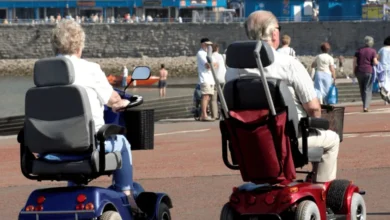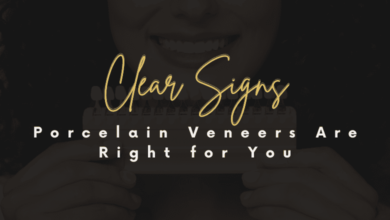How to Get Help After a Relapse?

What is the Difference Between a Slip and Relapse?
Understanding the difference between a slip and a relapse is crucial in the process of addiction recovery. A slip is a single, unplanned use of drugs or alcohol. It’s often a spontaneous event and does not signify a complete abandonment of the recovery plan. Conversely, a relapse involves a conscious decision to return to substance use, often marked by a series of decisions that lead to ongoing use.
What Does Relapse Mean in Drug Use or Alcohol?
Relapse in drug use refers to the return to drug use after a period of abstinence or reduced use. It’s a common part of the recovery process, indicating that treatment or support might need adjustment. Relapse can be triggered by various factors such as stress, social influences, or physical withdrawal symptoms. Importantly, relapse is not a failure but an opportunity to learn and modify the treatment plan. Seeking help from healthcare professionals or support groups is essential for managing relapse and achieving long-term recovery.
Is a Slip and Relapse the Same Thing?
While the terms slip and relapse are sometimes used interchangeably, they represent different experiences. A slip is a single, unplanned incident of substance use, whereas relapse is a return to habitual use, often involving premeditated actions. For example, slipping is akin to eating a piece of chocolate cake once while on a diet, whereas relapse is like continuously indulging in unhealthy foods and abandoning the diet entirely. Understanding these distinctions helps in addressing and managing the recovery process more effectively.
What are the Circumstances Someone Might Slip When it Comes to Drugs or Alcohol?
Slips can happen for various reasons, including unknowingly consuming substances or yielding to temptation in social situations. For instance, being served an alcoholic drink mistakenly or eating a pot brownie unknowingly can lead to a slip. High-stress situations where someone offers substances to calm nerves can also trigger a slip. Recognizing and avoiding these triggers, and being honest about one’s addiction, can help prevent slips.
Must Read: Alcohol and Drug Addiction Help in Johannesburg
What Do I Do If I Have Slipped in My Addiction Recovery?
If you experience a slip, it’s important to acknowledge the mistake, reflect on the reasons behind it, and recommit to your recovery. Talking to your recovery coach, sponsor, therapist, or support system can help you move past the slip. Expressing your feelings and finding the resolve to return to sobriety is crucial, as a slip can quickly turn into a relapse if not addressed promptly.
I Have Slipped a Few Times, but I Don’t Think I’m in Relapse
A relapse involves a conscious decision to abandon the recovery plan and return to substance use. It’s not an isolated incident but a series of actions leading to regular use. Sometimes, individuals use slips as an excuse for ongoing substance use, but consistent use, even if less frequent than before, is a sign of relapse. Understanding the difference between a slip and relapse can help in making the necessary adjustments to avoid falling back into addiction.
If You Slip, Do You Return to Day One?
The approach to counting days of sobriety after a slip varies. Some individuals prefer to reset their sobriety count to stay motivated, while others find this disheartening. Dr. Charlotte Kasl emphasises that a slip does not erase previous days of sobriety. It’s important to acknowledge the entirety of your life, including the slip, and continue moving forward. Every day and every decision counts in the path to recovery.
The 3 Main Stages of Relapse
Relapse typically occurs in three stages:
- Emotional Relapse
Struggling to cope with emotions or life circumstances, setting the stage for potential substance use. - Mental Relapse
Questioning the need for sobriety and downplaying the negative impacts of past behaviour, leading to thoughts of using substances again. - Physical Relapse
Returning to substance use, starting with an initial lapse followed by continued abuse.
What to Do If You’ve Relapsed
If you relapse, it’s essential to seek help immediately. Surround yourself with supportive friends and family, avoid triggers, and reach out to your sponsor or join a support group like AA or NA. Taking care of your well-being and forgiving yourself for the relapse are crucial steps. Consulting with an addiction specialist or visiting a detox facility can provide the necessary support to get back on track.
Supporting a loved one in a rehab in Johannesburg can be challenging, but being informed and involved can make a significant difference. Educate yourself about the rehab process and the specific treatment plan your loved one is undergoing. Understanding the daily routines, counselling sessions, and therapy involved can demystify the experience and enable you to provide informed support. Engaging in conversations with your loved one, actively listening, and asking thoughtful questions can help them feel less isolated and more understood.
Relapses, though sometimes part of the recovery, can be mitigated by adopting several proactive strategies. Understanding relapse as both an event and a process is crucial. This comprehension helps in identifying warning signs and recognising high-risk situations. Developing cognitive and behavioural coping skills is essential, as these can equip individuals with the tools to manage triggers effectively. Additionally, enhancing communication skills and interpersonal relationships plays a significant role in building a supportive network, which can be invaluable during challenging times.
Managing negative emotional states is another critical aspect, requiring strategies to reduce, identify, and address these feelings. Recognising and managing cravings is equally important, alongside challenging cognitive distortions that may undermine recovery efforts. Building a balanced and healthier lifestyle fosters overall well-being, reducing the allure of old habits. In some cases, combining medications with psychosocial treatments may offer additional support. By integrating these approaches, individuals can significantly lower the risk of relapse and maintain a steady path toward sustained recovery.
It’s also essential to find the best rehab centre tailored to your loved one’s needs. Each rehab facility may offer different programs and approaches, so research thoroughly and consult with professionals to ensure the chosen centre provides comprehensive and compassionate care.
Long-Term Recovery and Maintenance
Maintaining long-term sobriety extends far beyond initial treatment. Continuous education about addiction is crucial. Understanding addiction’s complexities, triggers, and physiological and psychological aspects empowers individuals to manage their sobriety. This can be achieved through reading relevant literature, attending workshops, and engaging with online resources that offer current information and strategies.
Regular therapy sessions are vital in long-term recovery. Individual, group, or family therapy provides a safe space to explore thoughts, emotions, and behaviours. Therapy helps uncover issues contributing to addiction and develop healthier coping mechanisms. Cognitive-behavioural therapy (CBT) is particularly effective in reframing negative thought patterns and behaviours.
Ongoing involvement in support groups, such as Alcoholics Anonymous (AA) or Narcotics Anonymous (NA), is essential. These groups offer a community that understands addiction and recovery challenges, providing emotional support, practical advice, and shared experiences. Regular meetings reinforce the commitment to sobriety and provide accountability.
Setting long-term goals maintains motivation and focus in recovery. Goals related to career, personal development, relationships, and health create a sense of purpose and direction, which helps avoid relapse. Goals should be specific, measurable, attainable, relevant, and time-bound (SMART) to ensure they are realistic.
Celebrating milestones in recovery is important. Recognising achievements, whether one month, one year, or a decade of sobriety, provides a psychological boost and reinforces positive behaviour, encouraging continued commitment to sobriety.
Final Words
Getting help after a relapse is vital for maintaining long-term recovery. Understanding that relapse is not a failure but a chance to reassess and refine the treatment plan is crucial. Differentiating between a slip (an isolated incident) and a relapse (return to habitual use) helps in responding appropriately. Addressing a slip promptly, seeking support, and recommitting to sobriety are essential steps. If a relapse occurs, immediate help from healthcare professionals, support groups, or addiction specialists is crucial. With the right support and strategies, individuals can learn from these experiences, adjust their recovery plans, and continue their road toward a healthier, substance-free life.
About the Author
Gareth Carter is a dedicated writer and advocate for mental health and addiction recovery. With a background in psychology and three decades of experience in the field, Gareth has worked closely with individuals on their path to sobriety, offering support and guidance through various stages of recovery. His passion for helping others is evident in his writing, where he combines professional expertise with compassionate insights to provide practical advice and encouragement. Gareth is committed to raising awareness about addiction and mental health issues, and his work aims to empower individuals to achieve long-term recovery and maintain a healthier, more fulfilling life.







